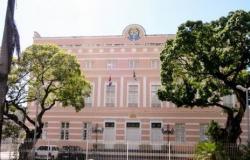Belo Horizonte is the third least unequal capital in the country, according to the Map of Inequality between Capitals, released by the Sustainable Cities Institute this Tuesday (26/3). Considering indicators such as education, income, poverty, work, climate actions, among others, the city is able to offer results above the average of 22 others. The first place is occupied by Curitiba (PR), followed by Florianópolis (SC).
At the other end, Porto Velho (RO) has the worst indicators, 23 of which are below the average of its peers. The three most populous capitals in the country – São Paulo, Rio de Janeiro and Fortaleza – are positioned, respectively, in fifth, 11th and 20th place. Brasília (DF) is not considered in the research.
Read too: National ranking: BH is the best positioned city when it comes to health
The publication brings together 40 indicators from different bases and surveys, such as the Census, the different Pnad (Continuous National Household Sample Survey) and the National Sanitation Information System (Snis). The indicators are grouped according to the 17 Development Objectives Sustainable UN (United Nations) The data used are also from different years, according to the most recent update (including, during the preparation of the study).
For Jorge Abrahão, general coordinator of the Sustainable Cities Institute and columnist for Folha, the map serves as a provocation for administrations. “Executives and Legislatures are often focused on emergencies and urgencies, and are unable to look at the bigger picture to see what still needs to be faced,” he says.
Capital performance
The ranking shows Belo Horizonte well positioned in some indicators. The capital of Minas Gerais is the leader in internet access in elementary schools; occupies the second position in vaccination coverage and the presence of councilors in the City Council. The city is in third place in relation to the population served with sanitary sewage and treated sewage before reaching the sea, rivers and streams.
Belo Horizonte, however, still needs to face some challenges. In the environmental area, the city ranks 23rd in rates of forested and natural areas; in the ratio of teenage pregnancy between blacks and non-blacks and real income between blacks and non-blacks. In relation to mortality due to suicide, BH occupies the 20th position and, in terms of salary inequality between men and women, the 19th. Finally, in relation to families registered in the Single Registry for social programs, the capital is in 18th place.
Read more: With a GDP of R$105 billion, BH is the 4th richest city in the country; see ranking
For sociologist Jorge Neves, professor at UFMG, the ranking allows us to observe that Belo Horizonte presents good results in indicators related to the public sphere and, perhaps, needs to carefully observe indexes referring to the private sphere. “For example, suicide is very much a private matter, it has to do with the family. Vaccination is something in the public sphere.” In the same vein, he adds: “This shows elements of conservatism and inequality within the family, in private relationships. Very high gender and racial inequality.”
Neves highlights, however, that the challenges of the private sphere are more difficult for the State to deal with than those of the public sphere. “It is much easier for the State to reduce infant mortality due to birth problems or malnutrition. The school can offer food, for example. Everything related to the provision of public services is easier for the State to act on than under family or business dynamics. The issue of racial and gender inequality is also in the private sphere, although the market is more exposed to State action than the family”.
According to the professor, this situation may be linked to society’s conservatism on the one hand, and a municipal management structure that has been effective, on the other. “The city halls of BH, over the years, have managed to offer good public services, but the conservatism of society generates many inequalities”. For him, it is much more difficult for the country to implement successful public policies in these cases, which makes the challenges even greater. “To be successful they need to act within the private sphere”.
With contribution from Lucas Lacerda* and Folhapress
*Intern under the supervision of sub-editor Rachel Botelho
Tags: #3rd capital inequality country
--





